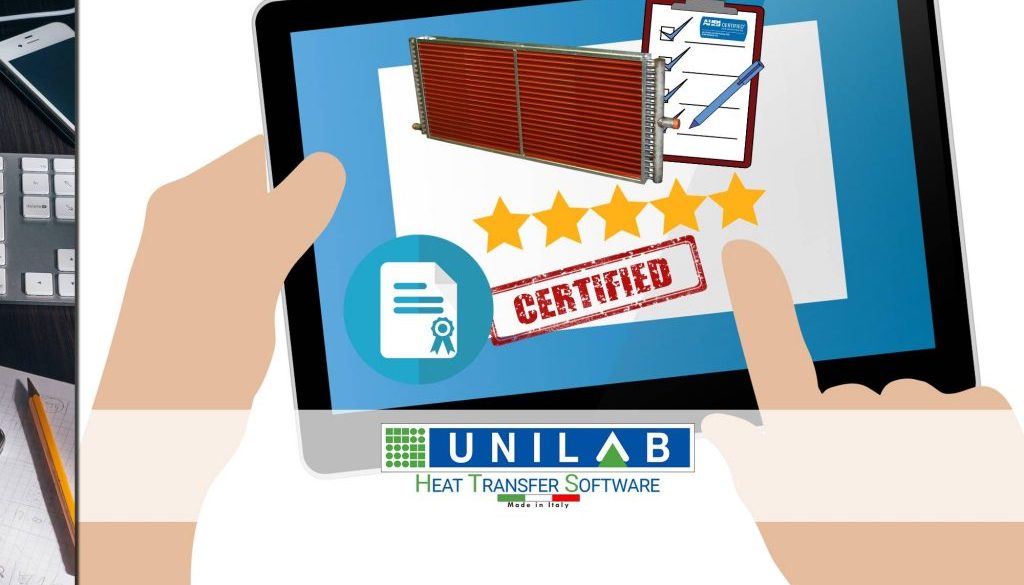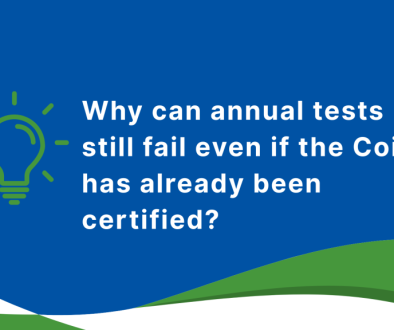UNILAB SPECIAL AHRI CERTIFICATION SUPPORT – Pt.4: HOW TO AVOID RERATING
Here we are on the 4th and final part of our quick AHRI guide! Before reading the following text, we always suggest you to carefully consult the General AHRI OM which you can find in the AHRI website. This is just a quick guide to provide you a general idea on how the process works.
As explained in the previous 3rd. article about AHRI Rerating, the percentage deviation between the calculation of the downgraded release and the original one must comply with the downgrading rate defined in the testing phase: it is therefore a correction factor to be applied uniformly to the entire BMG (= geometry).
A very simplistic example to understand the concept:
if I declare in my software 100 kW of duty, but the actual data calculated by AHRI is 94 kW, I will have more than 5% discrepancy. The test will fail and I won’t be able to do a recalibration in adjustment: I will have to do a rerating. How do I calculate the rerating coefficient?
Dividing 94/100, so 0.94. This coefficient must be applied to all the calculations that will be made with the software for that BMG.
On the basis of these considerations, it is clear that this is no longer a classic calibration, but requires a huge amount of additional work with respect to the previous calibration. Moreover, after the rerating, AHRI will carefully perform a calculation on the failed test + two other random sample calculations to verify that the coefficient has been applied correctly and the BMG has been downgraded correctly.
It is therefore of extreme importance and very strongly recommended that our Customers, before applying as an AHRI applicant, involve Unilab since the initial stages, being highly informed beforehand in order to prevent the risk of a rerating.
How to prepare yourself BEFORE applying to avoid rerating?
Preparatory work requires:
– testing in an accredited laboratory.
– test report done for each BMG.
– with the test report, UNILAB will proceed to the calibration of the COILS software geometry,
– UNILAB will then prepare a COILS setup including your BMG according to AHRI requirements, specifically for AHRI application
– We very strongly recommend to involve UNILAB in every step of the qualification procedure, both for applicants and participants. This is very important, since AHRI requires at least 30% of production of each participant to be tested every year. UNILAB must therefore keep updated the COILS builds sent to AHRI, which must be perfectly aligned with those used by the customer.
– We will take care of archiving these builds, but to do so, the customer must send us the test reports of the annual qualification activities.
What happens if I get a rerating?
Relying on UNILAB’s 20 years of experience in certifications from the very beginning, and following the preparatory work, reduces the risk of rerating to zero.
Moving independently, without calibration and not following the preparatory procedure is instead extremely risky, as well as enormously expensive for the customer. If a customer acts autonomously, not following the procedure and asking UNILAB for a rerate procedure afterwards, the work to be done will be enormously complicated for us, resulting in higher end costs for the user compared to an involvement of UNILAB in the early stages!
Relying on us is therefore not only convenient in terms of peace of mind for you, but also in economic terms.
We hope you enjoyed this short overview! For further information and technical doubts, you can contact us at sales@unilab.eu: we will proceed to interface with our thermodynamic technical department and we will provide you with all the answers!







